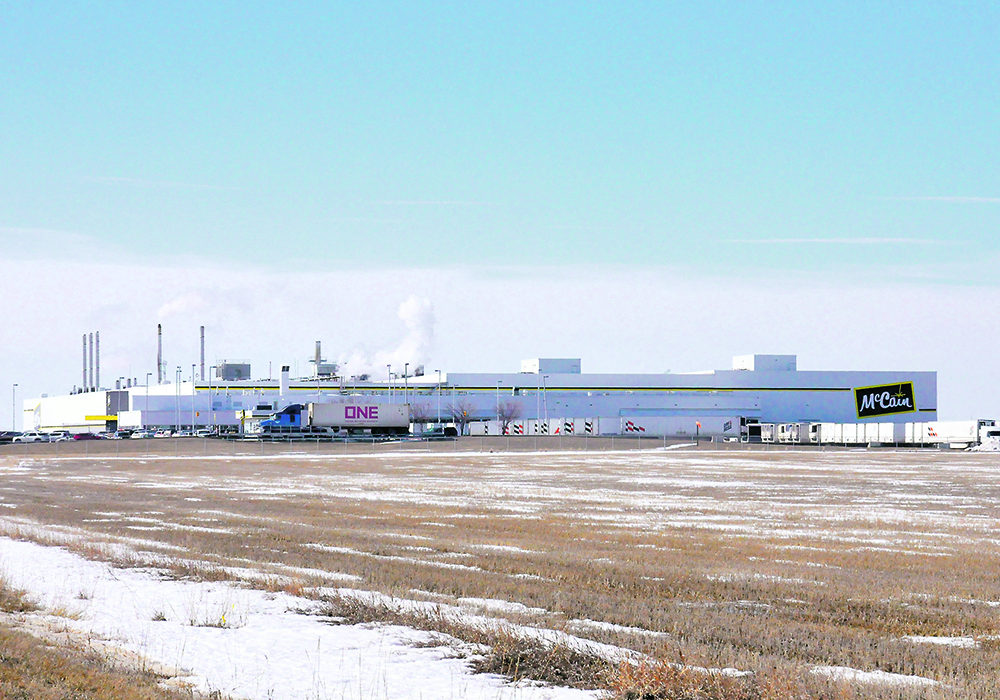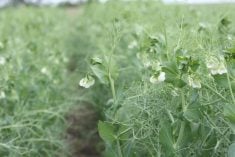Companies such as McCain and McDonald’s aren’t waiting for consumers to catch up as they develop a new food system
OTTAWA — The public might not be there yet, but some major buyers of farmers’ products are beginning to develop a “sustainable” food system.
“Consumers, they don’t get it. They don’t. They will, eventually, but we’re not going to wait,” Matt Kohler, McCain Foods Canada’s managing director, said at the Future of Food conference.
“Our assumption is that we’re going to move a little bit faster than their understanding.”
McCain, a buyer of large amounts of Canadian potatoes, has committed to acquiring all of its spuds from “regenerative” production systems by 2030. That’s going to require a lot of different growing practices from farmers if the goal is to be achieved.
Read Also

Farmers asked to keep an eye out for space junk
Farmers and landowners east of Saskatoon are asked to watch for possible debris in their fields after the re-entry of a satellite in late September.
McDonald’s, a major buyer of McCain fries and Canadian beef, is also driving down the sustainability highway before consumers are insisting upon it. However, Michele Boudria, president and chief executive officer of McDonald’s Canada, said the challenge of actually achieving improvements requires getting on top of things today.
“We believe in creating a circular economy in our restaurants,” said Boudria, referring to its attempts to cut its packaging waste.
It’s begun a program in Edmonton and Quebec to collect, separate, distribute and reprocess materials that have mostly been treated as waste until now.
McDonald’s has been a longtime supporter of the Canadian Roundtable on Sustainable Beef and has been supporting Ducks Unlimited’s re-grassing program, as has Cargill, with a goal of returning 125,000 acres from cropland to grass by 2025.
Kohler said his company recognizes that convincing its supplier-farmers to go 100 percent regenerative won’t be easy because few understand what that means on a production level. To help, it has set up a “farm of the future” in New Brunswick, another in South Africa and a third in development. At these sites farmers can visit and see how regenerative production both works and pencils out for profitability.
The company is also supporting a program that helps pay for farmers’ conversion to regenerative practices. That’s part of its recognition that farmers will need help to switch into a fully regenerative production system.
To work, the entire food production system, including government policies and regulators, need to be going in the same direction.
“It has to be an ecosystem of people collaborating, and they have to be unified behind a consistent vision in order to be able to get there,” said Kohler.
Somebody who has leapt ahead with “sustainable” practices is Kendra Donnelly of the Rimrock Cattle Company, which is introducing biodigesters to its feedlots.
Biodigesters are an oft-touted way of reducing greenhouse gas emissions from livestock production, but dealing with the technical challenges while remaining profitable has kept most producers away from building them.
Biodigesters can convert manure from a large source of greenhouse gas emissions to a non-emitting fertilizer.
Rimrock has gone ahead, and Donnelly said making the system work is a personal passion. Many nutrients are wasted by today’s manure management practices at feedlots, so getting the system operating efficiently should make production more economical. Farms incorporate manure better than feedlots today, but that could change.
With biodigesters, “we don’t lose that circular system that we have on our farms,” said Donnelly.
“We still have the nutrients.”
Most farmers and commercial producers haven’t gone far down the road with these sorts of endeavours, but Donnelly thinks producers need to jump ahead the way big companies have.
‘We need to challenge ourselves,” said Donnelly.
“How can we fit the sustainability goals of McDonald’s or McCain’s?… We need to not just understand our sustainability goals but theirs too.”
The hope is to create a Canadian food system that isn’t just matching the Canadian consumer’s demands for a sustainable food system but getting there slightly ahead of the rest of society.


















